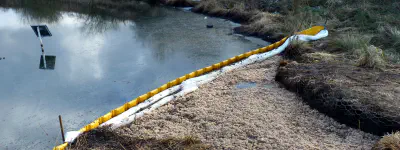Marine invertebrate anthropogenic noise research-Trends in methods and future directions

Abstract
Selecting the correct methods to answer one’s chosen question is key to conducting rigorous, evidence-based science. A disciplines’ chosen methods are constantly evolving to encompass new insights and developments. Analysing these changes can be a useful tool for identifying knowledge gaps and guiding future studies. Research on the impact of anthropogenic noise on marine invertebrates, a topic with specific methodological challenges, has undergone substantial changes since its beginning in 1982. Using this field as an example, we demonstrate the benefits of such method analysis and resulting framework which has the potential to increase conclusive power and comparability of future studies. We list taxa studied to date, use a range of descriptors to analyse the methods applied, and map changes in experimental design through time. Based upon our analysis, three research strategies are proposed as a best practice framework for investigating effects of noise on marine invertebrates and delivering policy-relevant information.